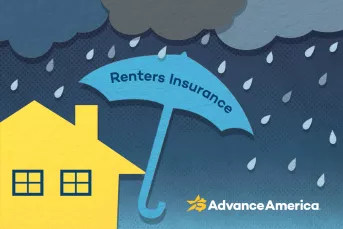
What Is Financial Literacy?
April is Financial Literacy Month, and there’s no better time to boost your money smarts!
Financial literacy isn’t just about planning for retirement or investing — it’s about making smart financial decisions every day. Whether you’re stretching your paycheck, building savings, or paying down debt, a few key skills could help you take control of your financial future.
Understanding financial literacy
Financial literacy: the ability to understand money concepts and effectively apply financial skills, such as budgeting, saving, and managing debt.
When you’re financially literate, you have the knowledge to budget, save, borrow, and handle debt with confidence. You’re less likely to fall victim to money scams and more likely to reach your financial goals.
And we’re not talking about big goals like buying a house, although major financial milestones are part of it. Financial literacy is the know-how to make the most of every paycheck and tackle financial challenges as they come.
Financial literacy statistics
- Worldwide, only one in three adults have a basic understanding of financial concepts
- 57% of adults in the US are financially literate
- 73% of college-educated adults are financially literate
- 77% of Americans are anxious about their finances
- 56% worry they can’t keep up with the cost of living
Sources: Standard & Poor’s Global Financial Literacy Survey and Capital One’s Mind Over Money Study
Key components of financial literacy
- Budgeting. Whether you prefer a simple monthly budget or a system like the 50/30/20 rule, keeping track of your income and expenses can help you stay on top of your bills, reduce overspending, and work toward those financial goals.
- Emergency fund. Life happens, and an emergency fund can keep you from going into debt when it does. Start by saving a small cushion for unexpected expenses like car repairs or medical bills.
- Managing debt. Debt can be a useful tool, but only if it’s managed wisely. Knowing how to control borrowing, understand interest rates, and prioritize payments can keep you on track and reduce financial stress.
- Borrowing basics. Understanding the different aspects of borrowing — including interest rates, loan origination fees, and loan terms — can help you choose credit options that fit your needs and budget.
➢RELATED: 5 Steps to Create a Budget
Why financial literacy matters
Without a good understanding of personal financial concepts, you may be more vulnerable to overspending and excessive debt.
According to a survey conducted by PayrollOrg, 49% of participants said they would struggle if their paycheck was delayed for one week. Over 60% report living paycheck to paycheck.
Financial literacy helps you:
- Stretch your paycheck by budgeting smarter and cutting unnecessary expenses.
- Stay ahead of bills so you’re no longer living paycheck to paycheck.
- Feel more in control, even when money is tight.
- Protect your financial wellbeing, reducing stress and improving your overall mental and physical health.
How to build your financial literacy
Start small, stay consistent, and remember: every step forward counts!
Learn common financial terms
Understanding basic concepts like annual percentage rate (APR), minimum payment, secured vs. unsecured, revolving credit, and installment can help you make informed decisions when borrowing, budgeting, or saving.
Check your credit regularly
Visit AnnualCreditReport.com to get a free copy of your credit report from each major credit bureau. You may also be able to track your credit score through your credit card company or identity protection service. Reviewing your credit history often can show you where you stand and highlight areas to improve.
Track your spending
Use a budgeting app, spreadsheet, or pen and paper to log where your money is going. Spotting patterns makes it easier to cut costs and free up cash.
Explore free services
There are plenty of free articles, podcasts, and calculators online to help you improve your money management skills. Check out our Money Tips for topics related to budgeting, debt management, and more.
How to apply financial literacy to everyday life
Being financially literate doesn’t just mean knowing the terms — it means putting them into practice. But how do you apply these skills to your daily routine?
- Make budgeting a habit. Review your weekly or monthly spending to see where you can adjust.
- Set realistic savings goals. Achievable short-term goals can keep you motivated, so break each goal into small, measurable steps you know you can achieve with a little effort.
- Shop smart. Compare prices, use coupons, and look for deals to stretch your budget further.
- Use credit wisely. Choose a trusted lender, compare rates and terms, and only borrow what you can afford to repay.
- Plan for emergencies. Build a small emergency fund, even if it’s just $100 to start, so you’re better prepared when life throws a curveball.
FAQs about financial literacy
What is financial literacy?
Financial literacy is the understanding of money concepts and how to effectively apply financial skills — such as budgeting, saving, and managing debt — to everyday life.
Why is financial literacy important for low-income households?
When every dollar counts, financial literacy can help stretch your paycheck, prepare for emergencies, compare credit products, choose reputable lenders, and avoid excessive debt.
What does budgeting have to do with financial literacy?
Budgeting is one of the key components of financial literacy. It helps you stay on top of bills, reduce unnecessary spending, and free up money to save or put toward your goals.
How can financial literacy help me get out of debt?
When you learn how to budget, build savings, and borrow wisely, you’re more likely to avoid the financial pitfalls keeping you in debt. You’ll know whether to pay off that debt or save money first, as well as effective strategies for debt management.
How do I become financially literate?
You’re off to a great start by reading this article! Now you’ll want to review your income, ongoing expenses, and overall debt.
Once you know how much money you’re bringing in (and how much is going out), you can work on building better habits — such as avoiding unnecessary purchases and making more than the minimum payment on debt.
Start small, stay consistent, and remember: every step forward counts!
Notice: Information provided in this article is for informational purposes only. Consult your attorney or financial advisor about your financial circumstances.


